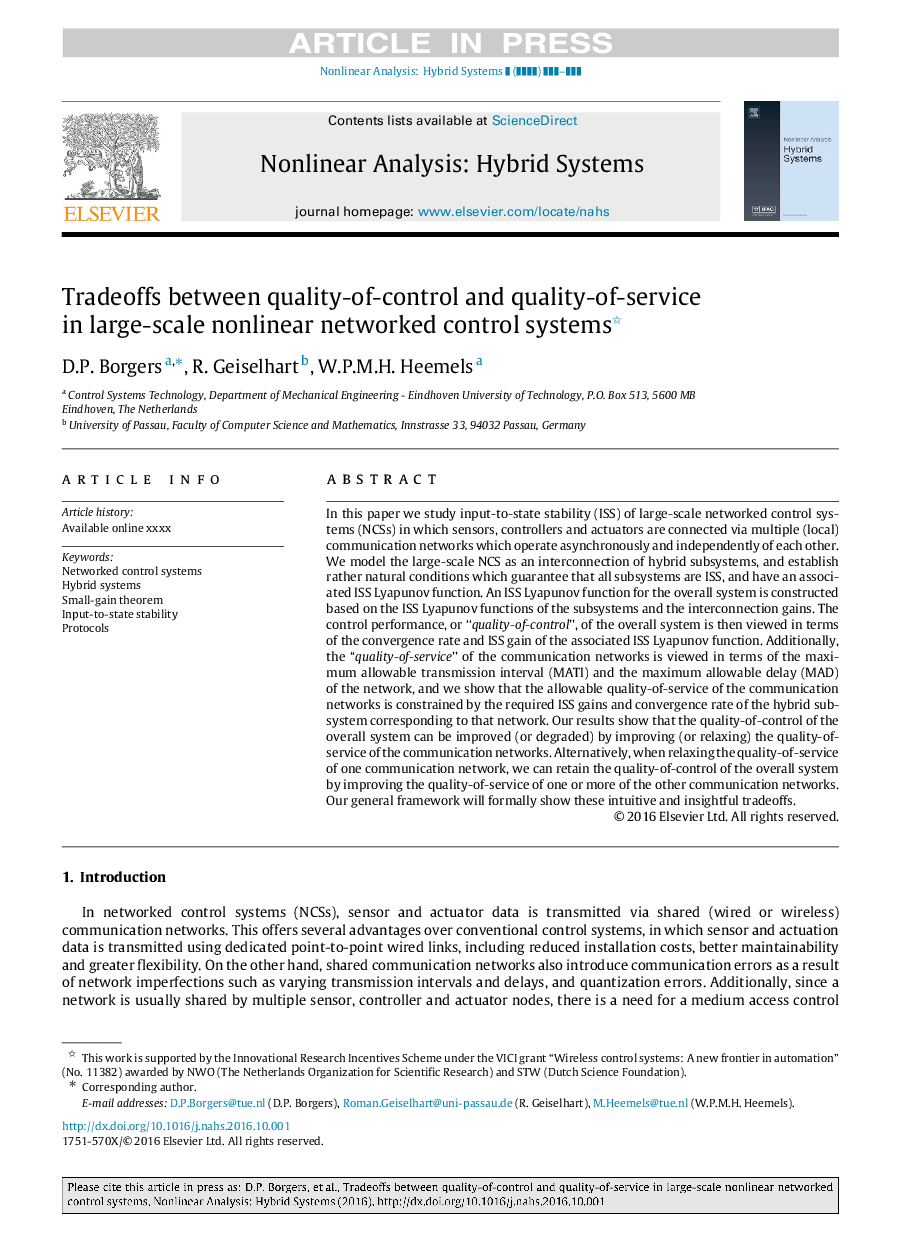ترجمه فارسی عنوان مقاله
تجارت بین کیفیت کنترل و کیفیت خدمات در سیستم های کنترل شبکه های غیر خطی در مقیاس بزرگ
عنوان انگلیسی
Tradeoffs between quality-of-control and quality-of-service in large-scale nonlinear networked control systems
| کد مقاله | سال انتشار | تعداد صفحات مقاله انگلیسی |
|---|---|---|
| 88571 | 2017 | 24 صفحه PDF |
منبع

Publisher : Elsevier - Science Direct (الزویر - ساینس دایرکت)
Journal : Nonlinear Analysis: Hybrid Systems, Volume 23, February 2017, Pages 142-165
ترجمه کلمات کلیدی
سیستم های کنترل شبکه، سیستم های ترکیبی قضیه کوچک شدن، ثبات ورودی به دولت، پروتکل ها،
کلمات کلیدی انگلیسی
Networked control systems; Hybrid systems; Small-gain theorem; Input-to-state stability; Protocols;

